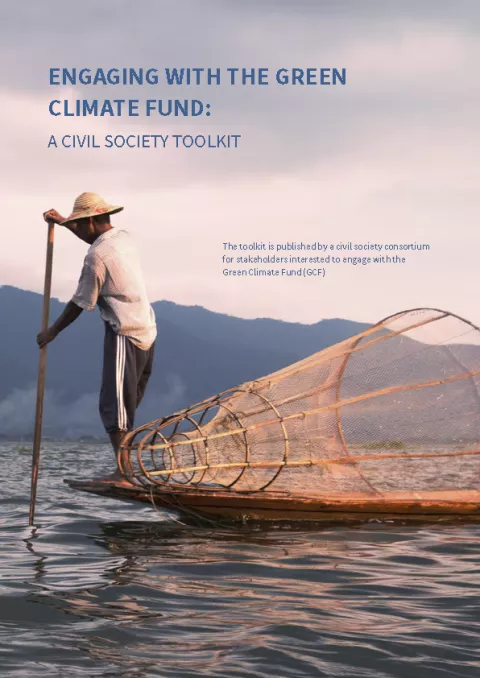
The Green Climate Fund (GCF) was created to serve as one of the primary funding institutions of the international climate finance architecture under the United Nations Framework Convention on Climate Change (UNFCCC) and the Paris Agreement. Its overall goal is to promote the “paradigm shift towards low-emission and climate-resilient development pathways’’ by providing support to developing countries, specifically those that are particularly vulnerable to the adverse impacts of climate change, to limit or reduce their greenhouse gas emissions and to adapt of global warming effects. With a portfolio of over hundred projects and programmes across developing countries, the GCF is expected to reduce more than 1.5 billion tonnes of carbon dioxide equivalent of greenhouse gases and to improve the life of over 276 million (direct and indirect) beneficiaries across 97 countries.
The Governing Instrument of the GCF, in paragraph 71, recognises the importance of stakeholder input and participation. It requests the board of the fund to develop mechanisms to promote the participation of broad stakeholders in the design, development and implementation of strategies as well as activities financed by the fund. Amongst them private sector actors, civil society organisations, vulnerable groups, women and indigenous peoples and communities.
Therefore, encouraging as well as building civil society readiness for the GCF has emerged as a necessary step in contributing to a successful fund. This toolkit aims to provide civil society actors and their organisations, as well as any other stakeholders interested in the GCF, with relevant information, deeper knowledge, and guidance on how to get involved with the fund. By providing an overview of the GCF and possibilities for CSO engagement, the publication introduces the key structures and policies of the fund and the functioning of projects and programmes, from their inception and development to their implementation and monitoring. An emphasis on the practicality und concrete usefulness of the toolkit is illustrated through a number of case study examples as well as useful tools, which illustrate civil society roles and provide hands-on approaches on their meaningful engagement with the GCF.
The toolkit is published under the project “CSO readiness for the GCF – focus Africa”, supported by the German Federal Ministry for the Environment, Nature Conservation and Nuclear Safety and implemented by Germanwatch and CARE with support from PACJA (Kenya), Enda Energie (Senegal), CISONECC (Malawi), AESVT (Morocco), and Kasa Initiative (Ghana).





